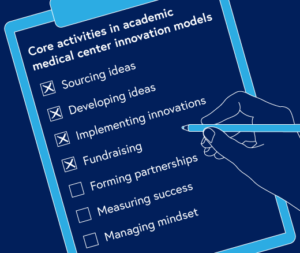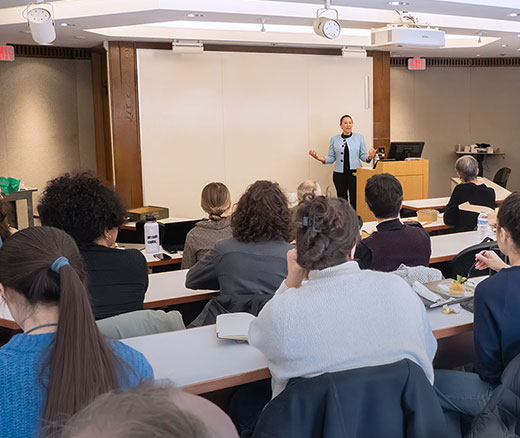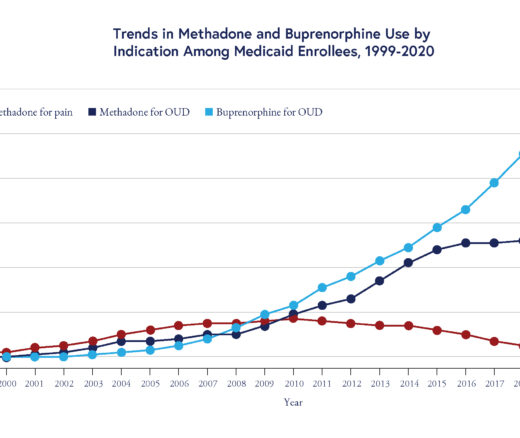
Only One in Four High-Risk Rural Births Get Appropriate Hospital Care
A Multi-State Study Finds That Parents Often Travel 60+ Miles—With Distance, Insurance, and Race Driving Gaps in Maternal Care
Blog Post
Academic medical centers are known for being innovation hubs. LDI Senior Fellow Ingrid Nembhard oversaw a study led by Penn Medicine and Wharton graduate Elana Meer that investigated successful health care innovation management. They interviewed directors at academic medical centers recognized for innovations about what led to their successes.
We asked the authors and LDI Senior Fellow Raina Merchant, Penn Medicine Chief Transformation Officer, about what they learned.

Calls for greater creativity and innovations that improve frontline care are commonplace but COVID-19 added urgency for fast, impactful changes—think of the rapid advances in telehealth, for example. Many frontline innovations even before the pandemic were developed in academic medical centers—they’re hubs for creative solutions and implementation strategies around clinical processes, information technology, digital health, and medical devices. We observed that innovation centers at different institutions generate ideas and implement innovation in various ways, though. To understand what makes efforts to transform care work, we explored what factors impede, promote and predict greater success of frontline innovation by interviewing leaders of academic medical centers recognized for innovation
Innovation occurred under centralized, multicenter, or department-level organizational models but regardless of the model, seven activities were crucial:

Innovation center leaders should consider how best their center can perform each of the key activities given their own context, and if innovations are addressing an identified problem. Many innovations are possible. The ones that will have robust engagement for success across the key activities that we identified will meet a need for patients and/or care providers, and leverage multidisciplinary, multilevel collaboration.
When thinking about your innovation center, consider what type of organizational model best fits your institution. This may affect how you achieve widespread implementation. Different centers do the same key activities in different ways.
Knowing similarities and differences in how innovative academic medical centers perform activities and overcome challenges informs practice and sets the stage for additional theory and research on frontline innovation management.

Through innovative approaches to early testing and experimentation, we learn what works and what doesn’t in a structured, focused manner. An important component is implementation and scale. It’s also useful to devote resources to taking lessons learned in a pilot phase to develop programs and initiatives that can be scaled across the health system. An essential element is receiving support from the executive leadership team and CEO to ground the work in the highest priority areas and support out-of-the-box approaches to challenges and embrace transformational change. This can include changing culture, practices, and policies. Regular input and engagement by staff and clinician leaders are vital for empowering teams, getting buy-in, and a willingness to change the status quo for seemingly intractable problems.
The study, Pursuing Innovation in Academic Medical Centers: Models, Activities, and Influential Factors, was published in Health Care Management Review in February 2023. Authors are Elana Meer, Iman Ezzeddine, Jessica Chao, and Ingrid Nembhard.


A Multi-State Study Finds That Parents Often Travel 60+ Miles—With Distance, Insurance, and Race Driving Gaps in Maternal Care

Former CMMI Leader Liz Fowler Cites Rigid Federal Scoring Rules and Bureaucratic Impatience for Pilot Failures

A Major European–U.S. Hospital Study Finds That Changing How Hospitals Are Organized Reduces Burnout and Turnover While Improving Care Quality

An LDI Fellow Who Helped Architect the ACA Highlights Progress on Primary Care Payment Reform and the Expansion of Site-Neutral Reimbursement Policies

Penn LDI Senior Fellow Dominic Sisti Cites “Alarming Levels”

Chart of the Day: Methadone Use for Opioid Use Disorder Tripled From 2010–2020, Yet Only One in Four People With Addiction Receive Medication